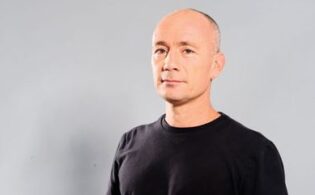Speaking at NATPE today, Avi Nir, CEO of Keshet Media Group, stressed that broadcasters can still be relevant and impactful amid the rising prominence of streamers.
Nir began by discussing how 2018 was a “defining year” for the company as it launched its own broadcast outlet in Israel, after long co-programming Channel 2. “We were in Hunger Games mode,” Nir said on how the launch of its own service affected the mindset at the company. “We had to totally change our game. We became more competitive than ever. It was a record year for us in development. We put almost 20 new shows on the air. We were developing as we never did before. That helped us. We ended the year having a 45-percent market share in Israel. And last Wednesday, our two competitors merged.”
It was also a stand-out year for the group’s international division. “We had a record number of shows developing under our deal with NBC. We are doing two shows with HBO. We purchased two companies, one in Germany and a group in U.K. Combining them with our abilities was great. We were more creative than ever also on the business side. We started a $65 million fund that supports deficit-financing shows around the world. It’s the first fund like this in Israel. We are very active also on the high-tech side.”
Nir noted that the company has benefited from being “lean and mean” against a backdrop of continuing consolidation. “The ethos of the company, in this world of giant companies, is to be small and act big. This is what defines us. We cannot compete with multibillion-dollar companies, but we can be a lean-and-mean operation. And we are very close to the creative process. There’s no hierarchy. We put IP at the center. The fact that we are that small and that lean allows us to really handle every piece of IP and take it all the way.”
The conversation then moved to unscripted. “Reality television is alive and kicking and playing a very important role in the broadcast schedule, but it still needs a kick in the butt,” Nir quipped. “The storytelling hasn’t changed. The ethos hasn’t changed. The world they are dealing with hasn’t changed. We see there’s great demand for a new age of reality. The old juggernauts that are still very effective will gradually wear out.”
Nir then stressed the continued importance of linear broadcasters, but emphasizes that you “cannot just do a good show—your shows have to make an impact. I don’t think broadcasters should give up hope. As long as there is a big demand for streamers, there is also a demand for something else, for a shared simultaneous experience. This is the historical role of the broadcasters. Strangely enough, it has come back in the age of individual viewing. So when you are developing a show, you should aspire for the highest goal. You should look to see if this show can resonate and make an impact for the whole country. It’s up to us as broadcasters to aspire for higher resonance with viewers. For us, this is the main goal.”
As a production and distribution company, meanwhile, Keshet Media Group’s goal is to create unique IP for a wide range of partners. “Every great IP has to find its own home. We pride ourselves on not leaving any great IP on the floor. We take care of them, we nourish them.”
After presenting a range of trailers of recent projects, Nir then talked about the upcoming, ultra-secretive 2025, which has been in the works for some 18 months. “It’s about both the attempt to reincarnate reality television and broadcast networks. How does a broadcaster resonate with the public? We realized we want to do a 24/7, stripped show. We took the best creators we have and we tried to create a new world, a new game, new storytelling. When we were approaching production, rumors started in Israel. We decided, let’s use this rumor as a marketing tool. This is what we’re doing, even though the show will air in two weeks.”
The show deals with a near-future world, a subject that has been dealt with in scripted “but not really in nonscripted,” Nir said. “It will be fun, very convenient, [the participants] will have luxuries, but they will have to be part of a game that deals with transparency. They all start as equals, but things will change. Some will go all the way up, some will go to the bottom. If you’re at the top of the chart at the end of the season, you win. If you’re at the bottom each week, you go.”



